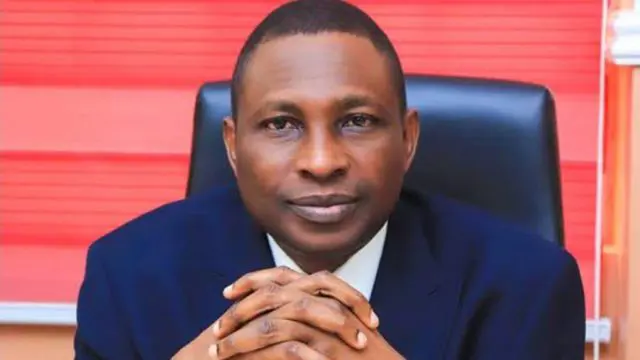STAKEHOLDERS have called for immediate reforms in Nigeria’s oil and gas industry to address the interconnected crises of corruption and environmental degradation.
The stakeholders made the call at the first International Anti-Corruption and Climate Change Conference in Abuja.
The event, organised by the Human and Environmental Media Development Agenda Resource Centre, in collaboration with Hawkmoth and supported by the MacArthur Foundation, focused on the relationship between climate change, energy transition, and sustainable development.
In his address, the Executive Chairman, Economic and Financial Crimes Commission (EFCC), Ola Olukoyede emphasised that the severe environmental damage in the Niger Delta, including oil spills and pollution, is largely driven by corruption, not just natural causes.
“The Niger Delta today is riddled with cases of oil spills, pollution and damage to the ecosystem. This cannot be blamed on natural occurrences alone. Corruption is at the root of climatic disruptions,” Olukoyede declared.
Olukoyode noted that transparency and accountability are essential in addressing these environmental and economic crises, and urged for the strict adherence to laws and regulations to combat corruption in the oil industry.
“This engagement for transparency and accountability provides auspicious opportunities for a frank exchange of opinions on the rightful ways to deal with the scourge of corruption in the oil industry and associated sectors. We can reverse them if we embrace accountable practices. This is achievable through compliance with laws and regulations existing in any system,” he noted.
Also, the Minister of State for Environment, Dr. Ishaq Salako, underscored the critical importance of transparency and accountability in tackling climate change.
Salako, represented by the Director, Department of Climate Change, Ministry of Environment, Iniobong Abiola emphasised the interconnected nature of climate challenges and the need for a comprehensive, all-sector approach to addressing them.
“As challenging and acute as the climate change crisis is, it cannot enjoy exclusive access to funding and attention and has to compete with other critical sectors for financing.
The Chairman of HEDA, Olanrewaju Suraju, reiterated the importance of learning from past mistakes as Nigeria shifts from oil and gas to new energy resources like lithium and solar energy.


